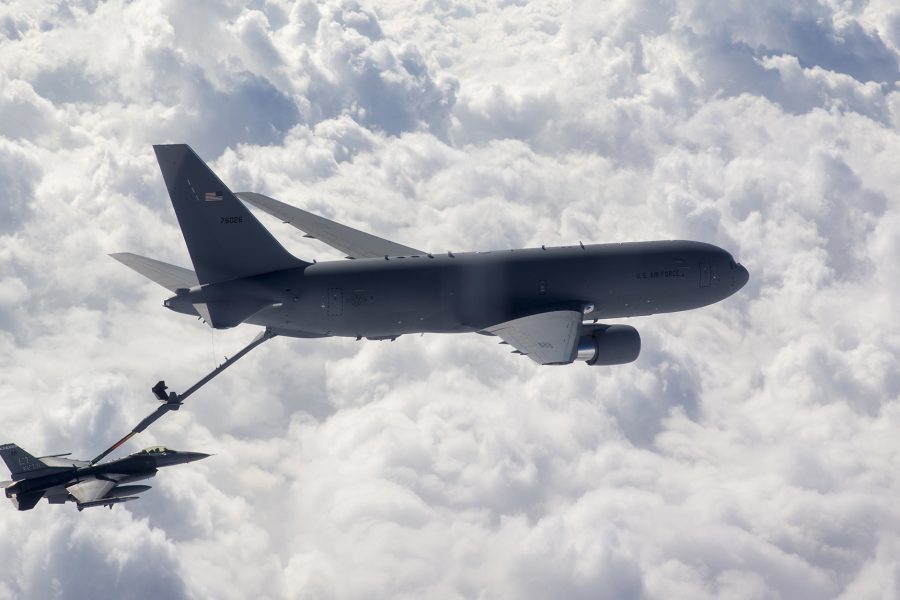Lawmakers are beginning to weigh how the fiscal 2021 defense policy bill could help solve the KC-46 tanker program’s woes and speed its introduction into regular operations.
Congress could dictate the terms of how Boeing should fix the tanker’s faulty remote vision system and how long that should take, as well as lay out possible repercussions, such as cutting the annual buy, withholding funding, or calling for a new tanker competition, according to Rep. Rob Wittman (R-Va.), the top Republican on the House Armed Services seapower and projection forces subcommittee, which handles oversight of the Air Force’s new tanker.
“Boeing has to get on board with this very quickly,” Wittman told reporters at an annual conference hosted by McAleese and Associates. “It’s going to take a new camera, new hardwiring, fiber optics, … high-resolution screens, high-resolution camera.”
He said the company should dispatch its full cadre of scientists to come up with a hardware solution to the RVS issue, which has failed to live up to expectations. The system is supposed to help refueling boom operators see the boom and the receiving aircraft, but images can be too blurry to connect the boom to a receiving aircraft. Wittman wants Boeing to test its fix using a “digital twin,” software that would hwlp testers vet new parts on computers without installing them in real life.
Normally, Wittman said, the process of developing a solution, testing it, adding it to already-built planes, and adding it to the production line would take four to five years. He wants RVS to be fixed in two years or less. The Air Force said March 3 it expects KC-46 will have a properly functioning RVS and be ready for regular operations in 2023 or 2024.
The congressman worries that leaving new tankers on the tarmac will delay the Air Force’s plan to retire KC-10s and KC-135s, and drive up the bill by paying for three refueling platforms at once.
“Those costs are going to start to reverberate,” he said.
While Wittman wants to see the program move as fast as is reasonable, he cautioned against unintended consequences of trying to speed a fix to the field. Still, Boeing can’t let the issue drag out, and has to stick to the requirements dictated in its Air Force contract, he said.
“What I want to make sure is that we don’t end up … litigating this,” he said. “I think we can get it done.”
After a March 3 Senate Armed Services Committee hearing on the Air Force’s fiscal 2021 budget, Defense News reported that the committee’s top Democrat, Rhode Island Sen. Jack Reed, said lawmakers in both chambers would “look at the full range” of legislative language that could help move the program along.
Wittman suggested Congress allow the Air Force to buy 12 aircraft instead of 15 as intended until Boeing follows through on its promises to overhaul RVS. He also indicated the company’s poor performance could spur the service to find a different contractor to build the tanker fleet. Boeing is on contract for the first five of 13 batches of jets but has suffered from delays, wayward debris, faulty cargo locks, and other problems.
“You could recompete this in the second phase,” Wittman said. “They would like to build more aircraft past the first phase. If you go back and recompete it, that’s going to be a challenge.”


